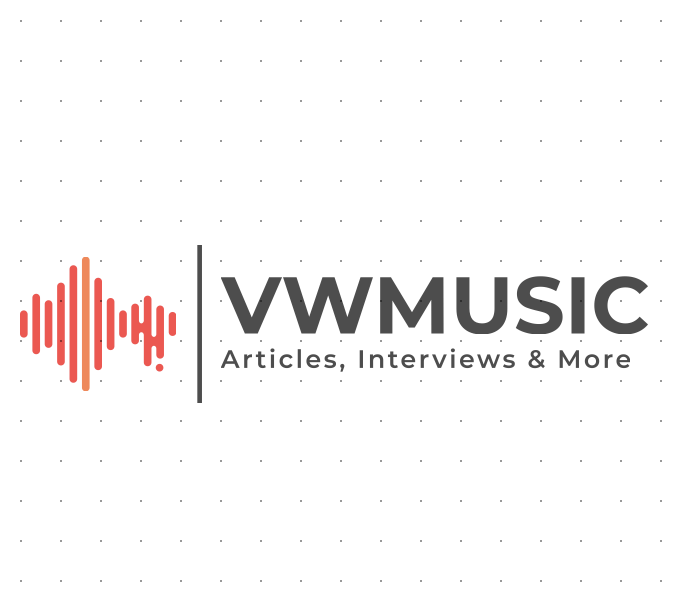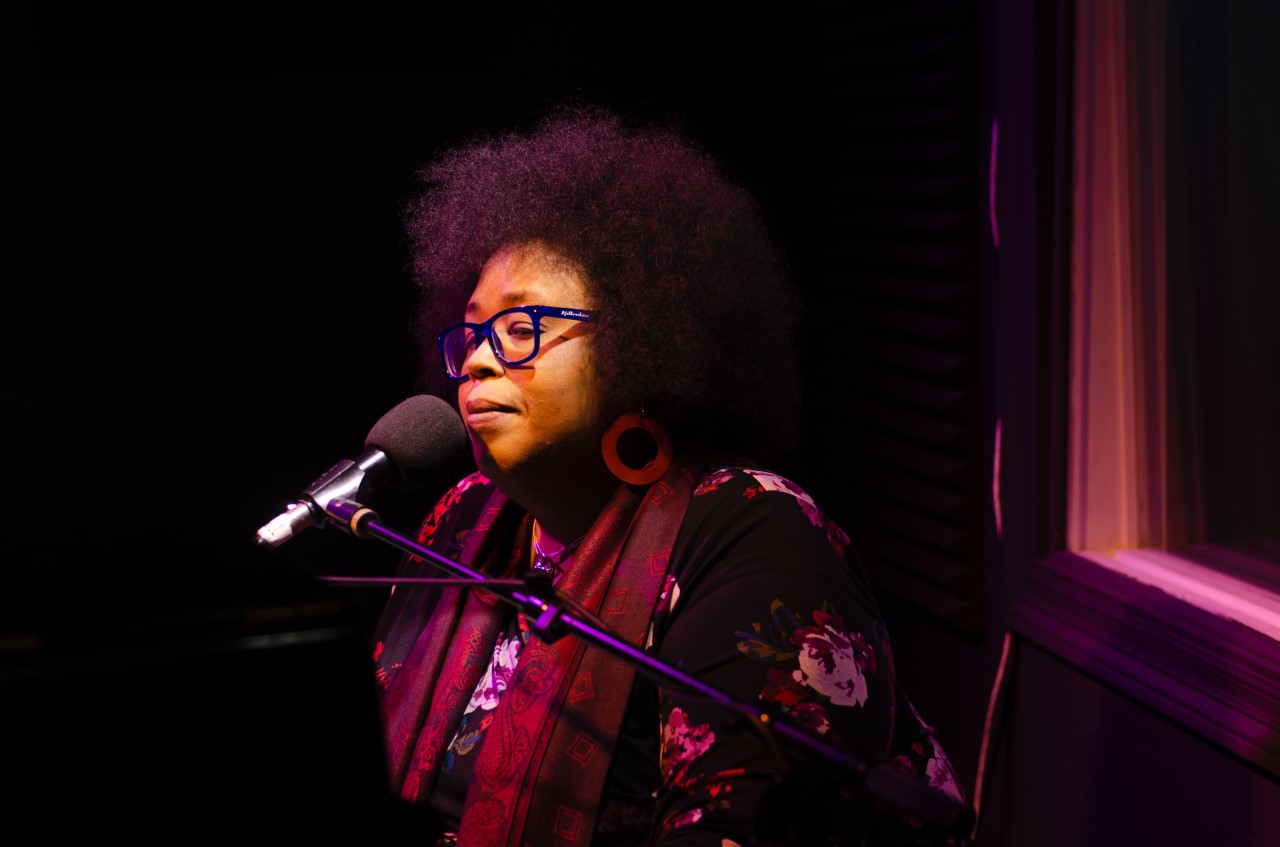
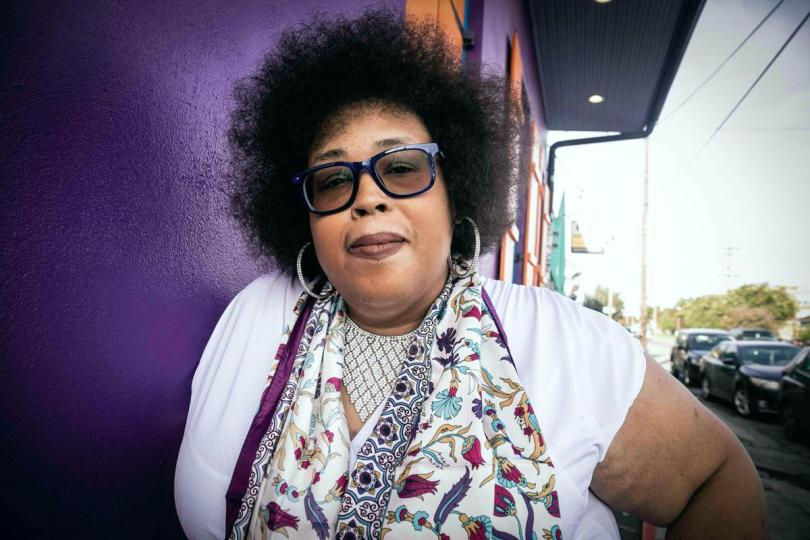
Recently, we had the pleasure of speaking with Lilli Lewis. Among other things, we touch on what she’s been up to during the lockdown, her newest music, her origins, and what she’s looking forward to the most once COVID-19 breaks.
Andrew:
Lilli, I appreciate you taking the time today. How have you been holding up over the last year or so? What have you been up to?
Lilli:
What have I *not* been up to? Last year was incredibly busy. When everything shut down, the label I was managing went in to full on public health advocacy work. We produced a PSA anthem about “Masking Up” that featured a number of New Orleans lineage holders like Kirk Joseph and Glen David Andrews, and then another one of our artists put out a single on flattening the curve. At the same time, with the help of Folk Alliane International, I launched Committing to Conversation, a program designed to engage and empower DEI initiatives through the global Folk community. It was and has been an honor to be able to apply time and attention to social engagement in that way.
This year I focused a great deal on releasing a huge project from Folk-Punk legend Peter Stampfel, and a new title from virtuoso Zydeco lineage holder Dwayne Dopsie. Those are both titles I’m really proud of, and of course we finished up my album, Americana, which we started recording in the Fall of 2020. I participated in a program called Global Music Match through FAI, which connected me with artists from all over the world and has led to ongoing collaborations. I also launched the first season of a new podcast called Folk Rock Diva Talk, and an inaugural Black Opry Fest, a virtual event that centered Black artists in Folk, Roots, Americana, and Country.
All of this happening while facing health issues with my mother that caused a pretty profound lifestyle change that re-oriented my life to her care and recovery. So, it’s been a huge couple of years for me, both musically and personally. I feel like the last 12 months in particular may have actually made a grown up out of me.
Andrew:
Before we dive into your professional career, let’s go back a bit. What first got you hooked on music?
Lilli:
As far as I know, there’s never been a time when I wasn’t obsessed with music. When I was three years old I dragged my family into our “fancy room” to give them an air piano performance of the music in my head, which proved awkward for them because unbeknownst to me, they couldn’t hear the music in my head.
For better or for worse, I think it’s been a lifelong obsession of mine to get that internal music out into the world so that other people could hear it. I’ve always been incredibly shy so the piano was my first best friend, and since I often find it difficult to “socialize” in ways other people might consider more normal, over time, music became the primary way I allowed myself to share how I see the world. I’ve been opening up a little more in recent years, but music has always been my safe space, the space I allow myself to be myself with no qualifiers or equivocation.
Andrew:
Who were some of your early influences?
Lilli:
My earliest recollections of music really was in my father’s church. It was a humble shack of a thing by some people’s standards, but it was called “Thank Baptist Church,” and I think I’m still incredibly thankful for the short time I spent there. It had an aging congregation, and in that space I was raised by the 65+ year old deaconesses who would pinch my ample cheeks every Sunday as part of their painful but effective love language. The way the congregation intoned together before each service felt ancient and fortifying. It had the sound of joyful mourning if that makes any sense, and the stomping of their feet against the hardwood floor was the only percussion besides our heart beats. Profound. It was at the church’s sesquicentennial celebration when I first sang and played piano at the same time. I was terrified and likely dissociated for half of that performance, but I understand now that it was enough that I just did my best.
Usually when people ask about my early influences, I say something about my love for turn of the (last) century French music. I let everyone know about my obsession with Gabriel Faure and something about how my innards dropped the first time I heard the Shostakovich Piano Trio performed live…but I’m realizing now that the most enduring aesthetic that I value, that I cling to, came from those early years in my father’s church.
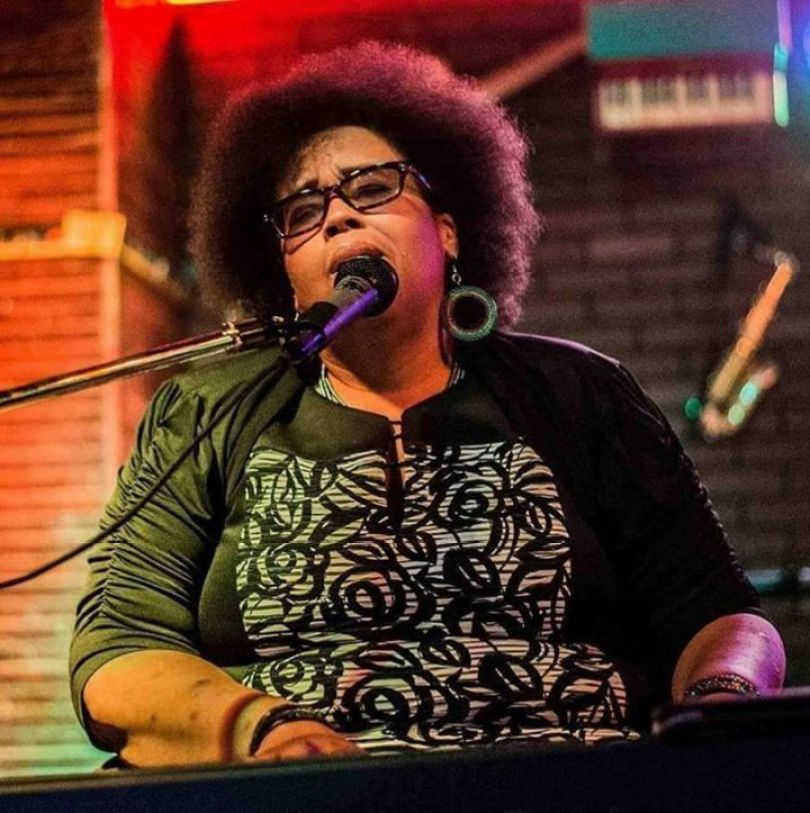
Andrew:
Let’s talk about recent events. Tell us about your new release, Americana. Tell us about the record and how it came together.
The idea for Americana came with the birth of the song, “If It Were You.” This was during the kids in cages crisis in 2020, and I just found myself unable to reconcile the dismissive (at best) ways in which I heard people talking about the circumstances. A lot of times when I feel helpless, songs come along to try to help me understand what I’m feeling. I couldn’t understand that at all, so the opening lyric was, “I don’t know anything about this.” By the time I got to the second verse, I realized I did know a little about the desperation that could lead to uprooting your family, but I never had any intention of singing the song because it was too transparent, sat too close to the bone, especially since melodically, I was telling it from a child’s voice. Toi Derricott, a decorated poet I look up to and have had the honor of befriending once said that with my art it’s imperative that I do what scares me the most, so once I committed myself to singing it, I knew I wanted to find other songs to dress it up. A few short weeks later, the album closer “My American Heart (Benediction)” showed up after waking from a dream.
What I liked about these songs is they reminded me of a style I used to find myself writing in a lot before I moved to New Orleans. They were more story driven than back beat, and I realized I had a lot of orphaned songs like that demoed out that had never been appropriately produced. I started making a list and discovered that not only was there an album there, but there was a unifying theme; all of the songs represented stories I’d been collecting during my walk as an “intersectional American,” meaning, one who occupies a lot of marginalized spaces, and that many of these kinds of stories aren’t often told in my chosen genre of Americana. They may get told in the Folk world, with which I also very much identify, but usually in a more from an observer’s lens, not so much from the first person point of view. That gave me the silly idea that the record could be more than just a vanity, but something that might prove to be of use in the context of the “difficult conversation” we as a society found ourselves in confrontation with in the wake of what appeared to be a morality free president seated during a deadly pandemic coupled with George Floyd’s murder. It took nearly a year to produce (when generally I only afford myself a few weeks at best), but I’m really happy that we took our time with it and that each song — each story — found its own voice.
Andrew:
What lyrical themes do you tend to explore with your music? Is your music intensely personal, or are you only telling stories?
Lilli:
I find that even when I think I’m only telling stories, it either still is or eventually becomes intensely personal. For example, I have a song called, “Kisses,” we recorded for my last record that was me trying to tell a story about loving someone who doesn’t know how to receive love from someone else’s point of view, and sure enough, after a few years of singing, it became my absolute lived experience (in the worst kind of way I might add!!). On Americana, when I was writing what became “Coffee Shop Girl,” I was collecting the stories of the women in my life who liked to talk about there guns…I had five or six verses/profiles written before I encountered the coffee shop girl who told me she only believed in the second amendment and that she thought integration laws shouldn’t have been imposed on people who didn’t want to integrate. Suddenly, the whole song became about that encounter, and the other people in the songs were just there to dress up that moment.
I used to be self-conscious about how personal my songs were. The writing has always really mattered to me, and I thought that great writing required that I learn to be more abstract, or, if I couldn’t learnt o be more abstract or broad, I should at least learn how to write a decent love song. I think now I feel more at ease with the fact that I’m just a steward for the songs that come through me. I’ll certainly keep trying to develop in the craft, but I also feel thankful for every song that has come through.
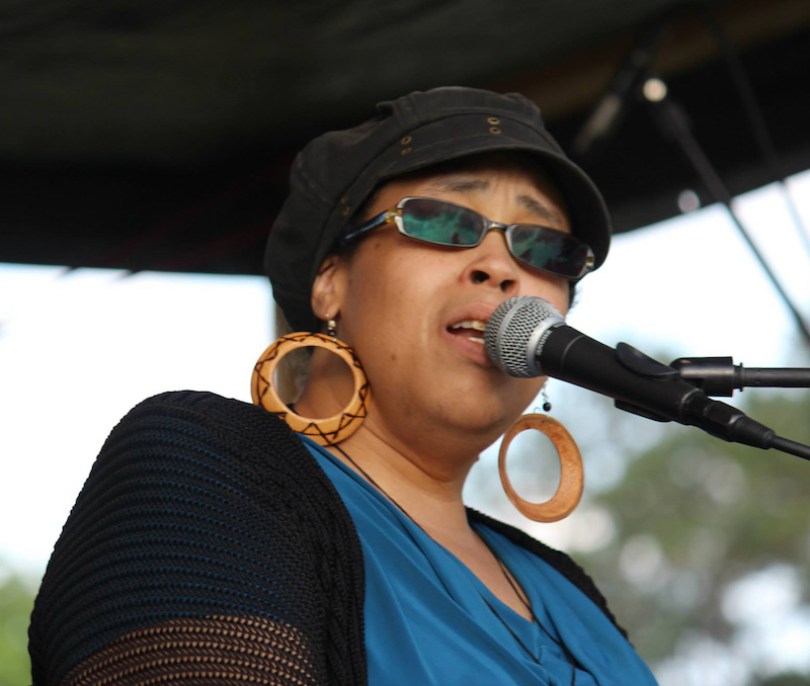
Andrew:
How have you evolved as an artist since your first release, The Coming of John? What’s changed most for you, and what have you learned?
Lilli:
Well, my voice has developed in important ways since then. Back then, every time I went to sing I felt like I was re-learning how to sing, teaching myself what my body needed in order to find a sound that felt authentic and transparent at the same time. In recent year, I’ve started to see that work come to fruition. I’ve had quite a few humble lessons come through as well. For example, I’ve learned that, while the music in my head might be sacred and necessary, that it’s ok to also write in a way that reminds people of the music in their head sometimes. I’ve learned that there’s a difference between making music to self-express, music to communicate, and music to connect. I am a songwriter and composer who’s always been aware of the first two, but in recent years, especially during my time in New Orleans, I’ve started to try to learn more about the connection piece. My social anxiety has made that part terrifying to engage in the past, but lately I’ve been deepening in the practice my opera teacher Dr. Gregory Broughton opened up for me years ago when commanded me to “stop hiding.”
Andrew:
You’re trained as both an opera singer, and a classical pianist. How have you applied that background, and those talents to your career as a Folk singer, and artist?
Lilli:
In my early years singing my own music, I tried hard to forget everything I’d been taught as a Classical musician because I perceived us classical musicians as being rather limited in our dependence on self-expressing through other people’s notes and words. I also found that our assumption that all music could be expressed through the language Western European art music was short sighted at best. I believed that the folk music I sought to unite myself with required that I learn something about music that “creates itself” — music that comes from the ether and iterates before it finds what it wants to say.
As a singer, I’ve found that my relationship to the breath has been essential in allowing me to be expressive across my range and keeping the instrument in relative good health, but it also prevents me from achieving some of the more trendy affects of contemporary singing. That feels like a small price to pay.
In recent years, my classical affinity seems to be rearing its head again, which seems ironic since my vocals now have blues and gospel inflections that they never had before, and since my piano technique is practically non-existent. Instead, what’s coming back is the reverence I had for the music as a classical musician. I threw that baby out with the bathwater when I started this journey of learning to play my own music, but the reverence is back in full force nowadays. It has become the source material I draw from when I prepare to offer a transmission for my audiences. I want them to know that I don’t take their time or their souls for granted. I want them to know that I am not there for their attention, rather, I come to attempt to add value to their lives. To that in, I have to remind myself that music designed explicitly to provide healing for their inside parts is in fact high art, and that’s what I’m attempting to bring to the stage these days.
Andrew:
In my opinion, minority artists do not get enough credit in the world of Folk music. In reality, black artists are more or less the originators of Folk music. Would you agree? Why do you feel minority artists are so overlooked within the genre of Folk? Is it a lack of general awareness, or lack of proper media attention? Both?
Lilli:
Folk music means different things depending on where you are. For example, I notice that at Folk conferences, indigenous music from around the world counts as Folk, and music that represents a specific geography counts as Folk, but in the US and in markets impacted by US definitions of Folk, the music of Black people has been systematically sectioned off over the last 100 years or so. It might have started with the invention of “Race Records” as a genre, but honestly, even that was just a function of how aggressively separatist “white” America has always been.
Our segregated America has meant that those in power have been willing to borrow and steal our art, but then uninvite us from the table when they named and commodified it. If we look at what happened in housing, we see that when public housing was built to serve the working class, regardless of race, housing “projects” were integrated. Later, when suburbs were built, only white families were allowed to move in to those properties. Communities were built “for whites only,” segregated by way of Federally backed red-lining, banking and insurance and insurance practices. Urban centers, now largely Black, became stigmatized and forgotten. Later we face gentrification, when the monied and white began to take advantage of low property value and re-furbish lands they once abandoned, bringing about a degree of “erasure” for the communities whose cultures once defined the space.
This can be the story of any minority group, but I think it is especially true of Black culture in America. We were essentially red lined out of the art we originated, and the shame and stigma of that by the folks who later occupied the cultural space we inhabited was never reconciled. I don’t know that we can say Black people invented Folk music because everyone who landed on American soil brought their folk traditions with them. That said, we are the originators of a lot of traditions folded into the Folk music lexicon like bluegrass, blues, roots, Country, and Americana. Our presence in these genres were bought out wholesale, and our contributions were subsequently blotted out.
I know that my language here may seem loaded, but I don’t actually intend that to be so. I am simply trying to present a sober account of what happened to the Black presence in Folk music. It is this context that brought about the lack of awareness and lack of proper media attention. Now when I go to Folk festivals and ask my audiences to define what folk music is, they discount every genre associated with Black people, even though they have white artists at the same event playing the very music they discounted. And as of yet, no one has once brought up the invention of “Race Records,” or attempted to contend with how that might have impacted their perception of what Folk music is, or who is allowed to define it.
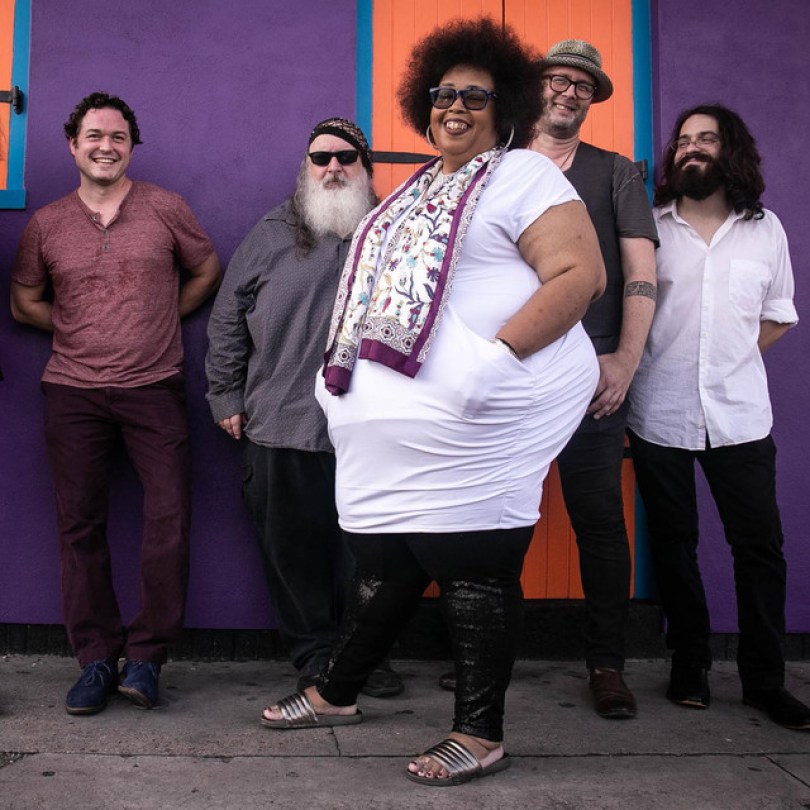
Andrew:
Easy one’s now. What are a few of your favorite albums, and why?
Lilli:
Easy? I’ve lived about 100 lifetimes so far so it’s really hard for me to pick. I can say that the recording I’ve listened to more than any other in my life so far is the Beaux Arts recording of the Faure Piano Quartets and Trio. Anita Baker’s Rapture is probably a close second. I also really like Erykah Badu’s Mama’s Gun. There are too many folk albums I love to begin to try to choose, but I’m a huge sucker for early Indigo Girls and all things Amy Ray. We’re also very much a Johnny Cash and Neil Young household, although Tom Petty probably reigns supreme. My favorite Tom Petty record is Wildflowers, but there’s no big revelation there! My personal second favorite Tom Petty record is The Last DJ, and I stand by that choice whole-heartedly.
My favorite album of classical singing is Cecilia Bartoli’s Se Tu M’Ami, which I’ll always view as a singular achievement. Close behind that is a tie between Jessye Norman and Lilli Lehmann’s recordings of the Four Last Songs of Richard Strauss, and only slightly behind those is Kathleen Battle’s Honey and Rue, not just because of rendering of the Toni Morrison song cycle of the same name set by Andre Previn, but because of her terrifyingly stunning performance of Barber’s “Knoxville, Summer 1915” — one of my favorite poets meets one of my favorite composers as sung by one of my favorite singers.
There are literally too many titles to name that send me to full swoon. Asking me to pick true favorites is like asking a parent which is their favorite child. It causes too much pain to even make the attempt. The question of why they’re my favorite is a little easier; my “like” for things tends to increase in direct proportion to how successful they are at stopping time for me.
Andrew:
What other passions do you have? How do those passions inform your music, if at all?
Lilli:
As uninteresting as it is, it’s hard to say if I have any other passions. I am kind of passionate about being of service, but that might be due to some neurotic co-dependent tendencies or because of an internal hunger for redemption from some existential crime that I’ll never know I committed. I also really like cooking for people, so much so that I almost won’t let you play my music with me if you haven’t partaken of my food…and I’m not even that great of a cook so YIKES!
Andrew:
I wanted to dig more into your involvement with the “Country Soul Phone Book” as well. Take me through the origins, and your involvement. What are your goals, and hopeful outcomes from it’s creation?
Lilli:
The CSSP as we refer to it was built in response to some messages I received from industry press after a virtual Black Equity in Americana panel presented by the Americana Music Association back in the fall 2020. The general air of the inquiries was “We would cover more of you if we knew about you and could find you” so the nerd/database geek in me thought I’d build a central location to make that possible. A few months later, Country Queer, an online magazine that centers queer people in Country and adjacent genres, released a directory that in essence had the data structure I was looking for. I reached out to Karen Pittleman from Country Music Against White Supremacy who had been an early champion of the project to help connect me with Jeremy Leroux, the developer for Country Queer, who repurposed to CQ structure to facilitate a data home that represented a fully intersectional space.
Our sister brand is Country Soul Songbook, an organization led by another AMA panelist, alt-Country artist Kamara Thomas out of North Carolina. They named themselves after Charles L. Hughes’ book of the same name, and their focus is intersectional activism in Country adjacent music spaces, so we named this iteration of the database the Country Soul Phonebook to explicitly mirror that intention. It really has been a community effort but it is now ready to ingest data. Our first phase will be a promotional campaign to try to capture as much data as possible. In our next phase, we’ll maintain the homebase for the data, but will later be able to also share the data on other sites that center specific demographics in the dataset.
Andrew:
In your opinion, what is the state of the music business these days? Should artists be hopeful? Scared? Both?
Lilli:
Artists should always be hopeful. It’s our job and sacred duty to remain hopeful, even here at the end of all things! We think we’re society’s Frodo, but really we’re the Sam Gamgees. It’s certainly a tough playing field but it’s never been more democratized. If your goal is to make money with music, there are certainly specific paths to accomplish that. If your goal is to be self expressed and get the music out to others, that’s also more accessible than any other time since maybe that of the troubadours! If your goal is to get famous…and maybe even rich…well, that’s a much narrower needle to thread, and that’s where I’d suggest some deeper study…maybe start with Robert Johnson at the crossroads?
Andrew:
Last one. What’s next on your docket? What are you looking forward to most in the post-COVID world?
Lilli:
I haven’t been on an extensive tour since I took over at Louisiana Red Hot, so I’m very much looking forward to getting back on the road…and maybe staying there for a bit. I’m looking forward to singing my songs for folks and then returning back home to my country house. That said, I will start the year in residency with the New Quorum in New Orleans, to finish a song cycle based on four poems of Toi Derricott, followed by a lovely concert we’re planning at the New Orleans Museum of Art. Then we’ll be headed to present at Folk Alliance in Kansas City, MO, with a number of festivals on the docket for the new year as well.
I think mostly, I really am looking forward to supporting this record and finding more time to enjoy a quiet homelife with the wifey. I’m going through a simplicity phase — I’m feeling curious about what pleasures a simple life can yield.
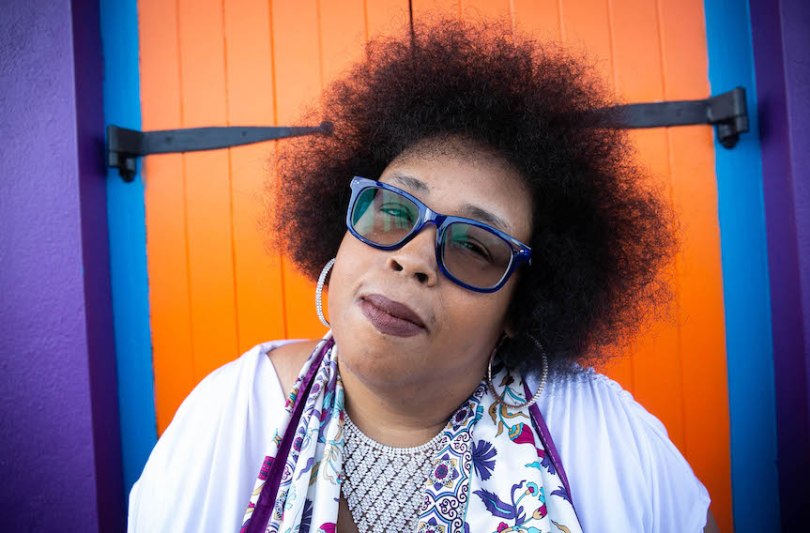
Interested in learning more about the music of Lilli Lewis? Check out the links below:
Dig this interview? Check out the full catalog of VWMusic Interviews, by Andrew Daly, here: www.vinylwritermusic.com/interviews
